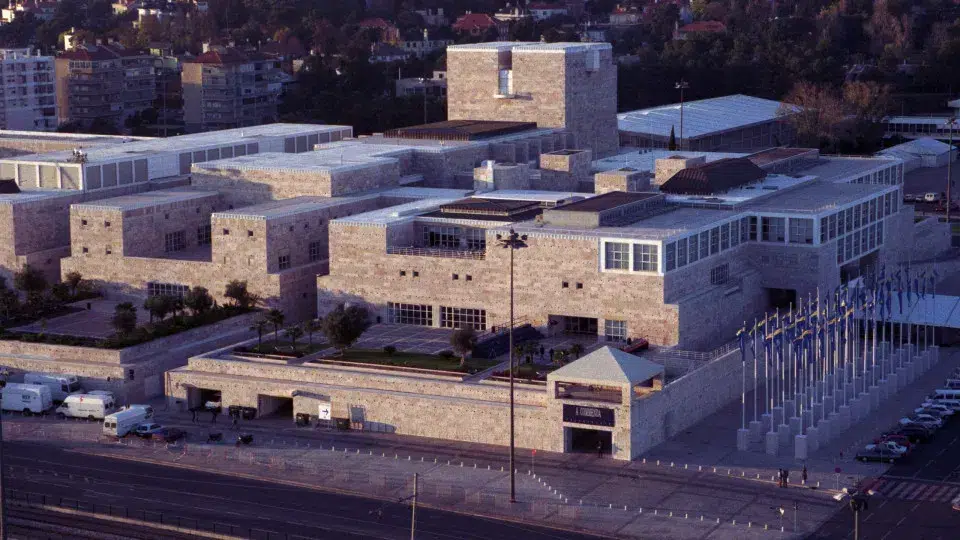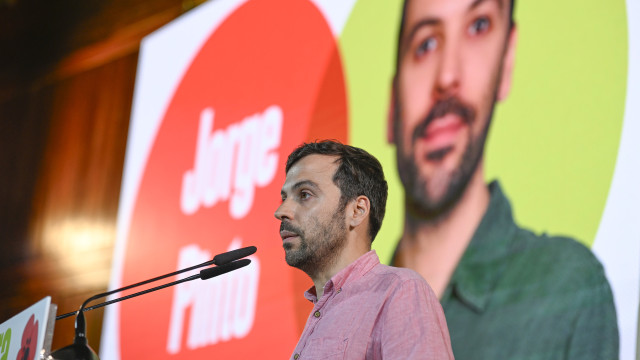Pedro Burmester, 61, returned last year to Johann Sebastian Bach’s work that he first recorded in 1989. He will perform six concerts across five municipalities from north to south, culminating at the Centro Cultural de Belém in Lisbon in January 2026, after having already brought the work to Sintra and Porto, among other locations last year.
The first recital on April 11 in Loures, Lisbon district, will be followed by two in Vila Real on May 24 and 25, both at Casa de Mateus, with the first concert preceded by a conversation with the pianist.
Burmeseter will then play the ‘Goldberg Variations’ at the Monastery of Alcobaça on June 28, at the Casa de Bragança Foundation in Vila Viçosa, Évora district, on October 18, and on January 30 of the following year at the Centro Cultural de Belém.
In an interview with the agency Lusa in December, following the release of the new album, Pedro Burmester admitted that the work once again captivated him, finding a much different musician 35 years after the first record, with a “more romantic, expressive, personalized reading.”
“It is a work that, live, is extremely difficult,” he stated to Lusa. “It requires immense concentration and presents very specific and unusual technical challenges. Thirty years ago, I performed several concerts with it, and I probably wasn’t completely satisfied. I must have said: ‘now, I won’t touch this anymore.’ I say this because now, having performed it five more times, the same thing happens,” he revealed.
The 60-year-old pianist last year presented the album in Sintra, Porto, Vila do Conde, and Piódão, confessing that the five concerts given were all “different,” without being satisfied with any of the performances, also considering performances abroad, besides the recitals announced today.
The return to the “Goldberg” was also “as a tribute” to a person Pedro Burmester admires, both as a pianist and especially as a thinker, Glenn Gould, who made precisely this double recording with so much time in between.
“When I discovered Glenn Gould, his thinking marked me deeply. Re-recording is also a tribute. The younger people in my field may not even know who he was. It is a way to draw attention to a man who remains current in the way he questions and positions himself regarding interpretation, in a somewhat provocative manner. He said that the scores posed for him and he painted them as he saw fit. He placed himself on the same level as the composer, something I confess I can’t do. He did it with great courage, frankness, and intelligence,” Burmester commented to Lusa.
When he was in his early 20s, Gould’s approach felt “like a revelation,” and the 1989 record contains “many influences” from the Canadian pianist. Without listening to the first recording, Burmester asked himself: “What is the difference between me today and myself 30 years ago?”
“A relatively simple way to find that out is to look at the same work years later. (…) I confess I was somewhat apprehensive. It was with some relief that I discovered [the recordings] were different, which is what interested me,” he analyzed.
Regarding the technical aspects of this work published in 1741, consisting of an aria and 30 variations, the “most complex” becomes simple to explain in Burmester’s words.
“The work is originally written for a harpsichord with two keyboards, meaning the hands move across the entire keyboard, one here, the other there. When we transpose to a single keyboard, the hands constantly collide. On a piano, I pass one behind, shrink a finger to pass the other…” he simplifies.
A native of Porto, Pedro Burmester began studying piano at seven and started his concert career at ten.
For ten years, he was a student of pianist Helena Sá e Costa, one of the foremost interpreters of Mozart worldwide, whose teaching activity was recognized by the Summer Academy of the Salzburg Festival.
Burmester completed the Piano Superior Course at the Conservatory of Porto with the highest distinction in 1981. He also studied with Sequeira Costa, Leon Fleisher, and Dmitry Paperno in the United States, where he received the Special Jury Prize at the Van Cliburn Competition. He participated in master classes by Jorg Demus, Aldo Ciccolini, Karl Engel, Vladimir Ashkenazy, Tatjana Nikolaieva, and Elisabeth Leonskaja.
In 1983, he was the runner-up in the Vianna da Motta International Competition in Portugal, an edition without a winner.
Besides classical music, he explored jazz, recording and performing with pianists Mário Laginha and Bernardo Sassetti.
Burmester is a professor at the School of Music and Performing Arts in Porto.
In a previous interview regarding the ‘Goldberg Variations,’ Pedro Burmester stated that “there must be a God for there to be this music.”
Writer Valter Hugo Mãe, who writes the text accompanying the latest album edition, states: “Bach’s magnificent work now finds the pianist in an interpretation that only someone who has matured and crosses the musical monument in pure intuition can do. This album is the meeting of perfects. Bach and Burmester.”




